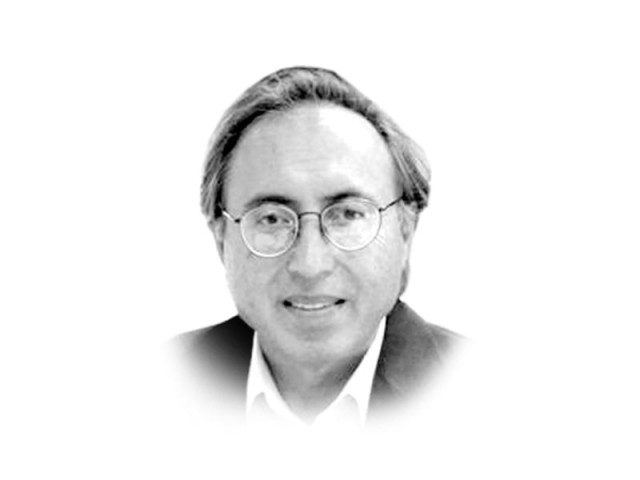Nothing but democracy
In my view, democracy is the only way Pakistan can stabilise itself, progress, achieve peace within & in the region.

As we can glean from sampling public opinion, from public statements and media comments of certain political party leaders to drawing room chatters, democracy is not taken as one of the fundamental national objectives. This is a question that should have been settled in its early years, but unfortunately continues to be an issue even after 64 years. In my view, democracy, is the only way Pakistan can stabilise itself, make progress and achieve peace within as well as with the regional countries.
All countries have started on this road with one central idea — constitutional democracy — which in a way we are. The reason we appear to be unsettled is that the main stakeholders in the political system — the military, the political executive and the major opposition parties, are impatient being on the sidelines of power — wish to give a meaning to democracy, the Constitution, patriotism and civilian democracy that would support only their political interest and point of view. I would rather consider this state of affairs normal than alarming in this transitional stage of Pakistan’s democratic development for two reasons.
First all counties have been through this stage of development before the major political players and state institutions adjusted to their constitutionally determined roles and positions. Second, being unstable and facing conflicts over issues of jurisdiction, lawful authority and what can or should be done in the face of the challenges that Pakistan faces cannot be a reason to bring down an elected government by any unconstitutional means — indirect, soft or direct military intervention.
It is true that popular support for the present coalition at the federal level has declined, the charges of corruption and incompetence against the government headed by Syed Yousaf Raza Gilani are not without substance and some of the hired guns within this government would like to see the current political order pulled down. But given all this, the cost of undoing an elected coalition government — that has coalition partners from all provinces of Pakistan — unconstitutionally, will be far greater than the short-term relief of seeing an inapt political group be torn down.
We have a right to be critical of the government, as many of us, including myself, are, and we have vehemently opposed the government on a number of issues. We have called for a popular uprising and to force the government to act in public interest. That is within the democratic, constitutional domain. Let us remind ourselves that the idea of an objective critique of a democratic government is not to kill democracy but to improve its essence and functioning.
It is my earnest belief that without democracy — supremacy of the Constitution, rule of law and representative government — we, as one of the largest Muslim countries, will never be able to govern, stabilise or be at peace among ourselves. Whispers and off the record calls for removing this government by unconstitutional means, no matter how we feel about its deficiencies, pose a threat to our collective interest as a political community.
Let us learn from our past when non-political messiahs damaged democracy, the Constitution, the courts, rule of law and national cohesion. They gave us a fragmented and weak society, a manipulated polity and a dysfunctional state.
Published in The Express Tribune, December 21st, 2011.















COMMENTS
Comments are moderated and generally will be posted if they are on-topic and not abusive.
For more information, please see our Comments FAQ